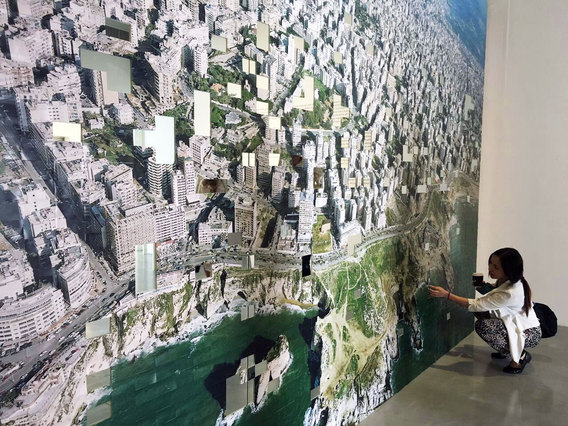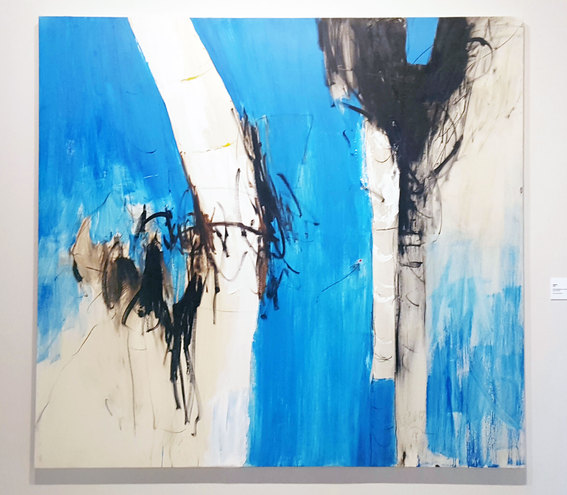
R
E
V N
E
X
T
Yesterday concluded March Meeting 2016, which saw some 40 curators, artists and arts professionals gather to discuss and debate important topics pertaining to education and community participation in the arts. Though the symposium was over, as a generous extension to my first (and thoroughly enjoyable) visit to Sharjah, I still had two extra days to indulge in more of the cultural Emirate’s charm.
On Monday, I began the day back at Dar al-Nadwa, Calligraphy Square, where the March Meeting had been hosted. There, a one-day conference titled “Equator Conference 2022—Jogjakarta, Held in Sharjah in March 2016” was being hosted in the same venue. The slightly more casual ambience of the conference was a welcome change to the intensity of the March Meeting. Developed as part of the programming of Sharjah Art Foundation’s (SAF) exhibition “The Time is Out of Joint,” the lineup of talks in the conference used the show’s theme of “time as a fluid place and place as a frozen time” as its point of departure. Admittedly, I was only able to attend the first two morning talks before I was plucked from my seat and taken to see some actual art.First stop was Lebanese collaborative filmmakers Joana Hadjithomas and Khalil Joreige’s exhibition “Two Suns in a Sunset” in Building J & P of SAF’s art spaces in the Heritage Area. Hadjithomas generously guided a tour through the exhibition, talking about each individual project, some of which had spanned many years of research. An hour and a half later, I walked out of the exhibition still digesting the process behind each work and some of the related heart-wrenching stories told by Hadjithomas of a Beirut torn apart and devastated by war.
After lunch, we were given an intimate tour of the retrospective of late Iranian artist Farideh Lashai (1944–2013) held in Bait al-Serkal, a beautiful 19th-century building that once served as Sharjah’s first hospital in the 1960s. Lashai’s daughter, Maneli Keykavoussi, guided us casually through the maze of rooms and alcoves, stopping in each to explain her mother’s vast creative output of drawings, paintings and animations.
Easily persuaded into plans leading to yet another late night out and about, I found myself in Dubai for Alserkal Avenue’s Galleries Night. Wandering between warehouses and spacious galleries crammed with art, people and drinks, I was struck by the swanky atmosphere of Dubai’s gallery district. It was a drastic contrast to Sharjah’s quaint cityscape. Just for a moment, or several, I forgot I was among the desert region.
Denise Tsui is assistant editor for ArtAsiaPacific.






